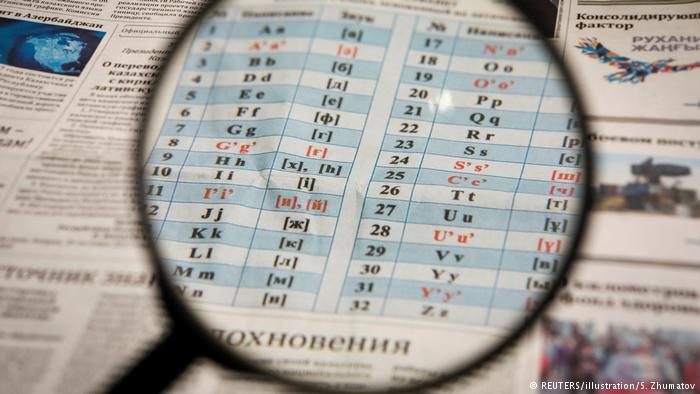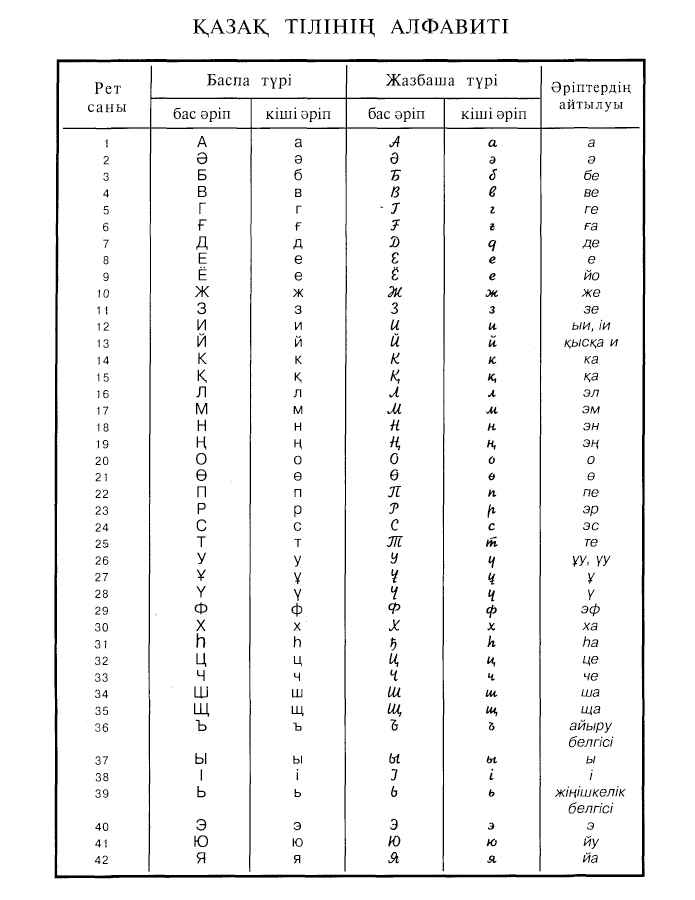
“Why? Why do we need this? Why can’t we just stick with Cyrillic?”
That’s what Inkar Kydyralina asked herself when she first heard that the Kazakh alphabet would be switched from Cyrillic to Latin.
The answer to her question, according to the Kazakh president Nursultan Nazarbayev, is that the change is needed to reflect the country’s modernization and to better facilitate Kazakhstan’s communication with the rest of the world.
In the fall of 2017, the first version of the Latin Kazakh alphabet was released. The letters were initially adorned with different apostrophes to indicate pronunciation, which elicited country-wide disgruntlement and online petitions claiming that the apostrophes made reading and writing too complicated.
This week, the Kazakh government responded to the complaints by officially introducing a revised version of the Latin Kazakh alphabet. The unpopular apostrophes have now been replaced by accents.
Intergenerational differences
Kydyralina, 20, moved to Canada from Kazakhstan when she was 15 and now is a Human Resources Management student at George Brown College in Toronto.
For her, the transition from Cyrillic to Latin won’t be overly complicated because of how comfortable she has become with the English language. It’s also partially due to technology.
DV1368719
Kazakhstan’s President Nursultan Nazarbayev delivers an annual state of the nation address in the Kazakh capital Astana, on December 14, 2012. (STANISLAV FILIPPOV/AFP/Getty Images)
“Most of the time I communicate in Russian or Kazakh with the Latin keyboard because sometimes I’m just too lazy to switch to Cyrillic. It might seem funny, but sometimes it’s just hard because I might have multiple conversations, and some of them are in English and some of them are in Russian. And for me, switching constantly from Cyrillic to Latin just gets annoying,” she says.
Kydyralina says her family in Kazakhstan won’t experience the same smooth transition.
“For the older generation like my parents or my grandparents, they don’t know English as well as I do and it is hard for them,” she explains. “They’re so used to the Cyrillic signs. It’s confusing. There are going to be so many changes.”
Inkar in Kazakhstan park
Inkar Kydyralina is pictured near Kok-Tobe mountain in Almaty, Kazakhstan. (Inkar Kydyralina)
“My grandfather tells me how he’s slowly learning. Sometimes he types me messages saying: ‘Hey, I miss you. How are you?’ in Kazakh. Actually, the last message I got from him was in Latin, and even for me it was a bit weird because I’m not used to it,” she says.
“It is going to be hard for him, but he’s very dedicated and he said he will start learning, because even though it is something new for him, he said that he’s willing to learn because it’s never bad to learn something new, right?”



